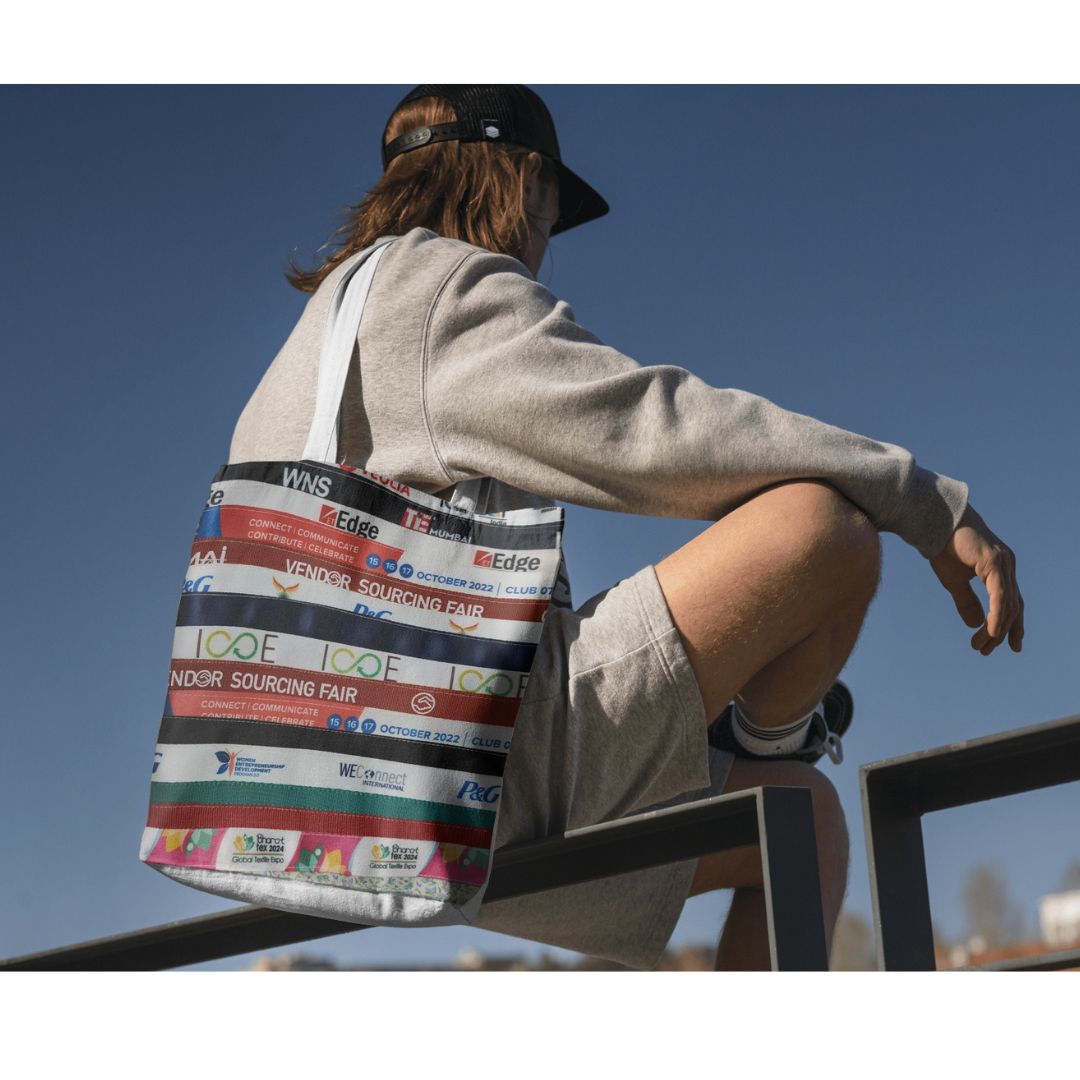
Threads of Identity: Exploring the Cultural Significance of Fashion | Bunko Junko
Share

Pic : This bag are one o kind made by Bunko Junko from lanyards.
Fashion is more than just clothing; it's a reflection of our identity, a canvas through which we express our culture, history, and individuality. The interplay between fashion and culture is a rich and intricate tapestry, woven through centuries and continents. In this blog post, we'll embark on a journey to explore the profound connection between fashion and culture, showcasing how clothing transcends mere aesthetics to become a powerful cultural emblem.
A Mirror of Cultural Heritage
Fashion serves as a window into the past, a living archive of traditions and histories. Traditional clothing, often passed down through generations, embodies the cultural identity of a community. Whether it's the vibrant saris of India, the intricate kimonos of Japan, or the colorful dashikis of West Africa, these garments tell stories of heritage, rituals, and social status. They are symbols of pride and belonging.
Fashion as a Form of Expression
Individuals use fashion as a means to express their identity and cultural affiliation. From the street style of urban centers to the attire worn during cultural festivals, clothing choices often communicate a sense of belonging to a particular group or subculture. For example, punk fashion emerged as a rebellion against mainstream culture and has since become an iconic subcultural style.
The Global Fusion of Styles
In our increasingly interconnected world, cultures collide and merge, resulting in fascinating hybrid styles. This fusion of fashion not only reflects globalization but also promotes cultural appreciation. Designers draw inspiration from diverse cultures, incorporating elements from around the world into their collections. This cross-cultural pollination can be seen on runways, in streetwear, and in everyday attire.
Cultural Appropriation vs. Appreciation
While cultural exchange in fashion can be enriching, it's important to address the ethical issue of cultural appropriation. This occurs when elements of one culture are adopted by another without understanding or respect for their cultural significance. It's crucial to promote cultural appreciation, which involves understanding, respecting, and acknowledging the origins and significance of the styles and designs we incorporate into our fashion choices.
Fashion as a Tool for Social Change
Throughout history, fashion has been a potent tool for challenging societal norms and advocating for change. Think of the feminist movement and how women's fashion evolved to reflect changing roles and expectations. Similarly, movements like Black Lives Matter have prompted discussions about racial representation in the fashion industry, leading to calls for greater diversity and inclusion.
The Influence of Pop Culture
Pop culture and fashion are inextricably linked. Iconic movies, music, and celebrities shape fashion trends and inspire new styles. From Audrey Hepburn's little black dress in "Breakfast at Tiffany's" to the grunge aesthetic popularized by Kurt Cobain, pop culture icons leave an indelible mark on fashion.
Conclusion: A Global Tapestry of Expression
Fashion and culture are intertwined, creating a vibrant, diverse tapestry of human expression. Whether we're donning traditional attire, experimenting with fusion styles, or using fashion to challenge societal norms, our clothing choices reflect our cultural heritage, values, and the ever-evolving narratives of our lives.
As we continue to explore the world of fashion, let's celebrate the beauty of cultural diversity, promote understanding and respect, and use fashion as a means to express our unique identities and foster connections across cultures.
Fashion is not just about what we wear; it's a reflection of who we are and where we come from, and it has the power to unite us in our shared human experience.
